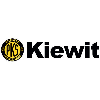- Search jobs
- Annapolis Royal, NS
- mechanical engineering
Mechanical engineering Jobs in Annapolis Royal, NS
Create a job alert for this search
Mechanical engineering • annapolis royal ns
- Promoted

Automotive Technician
Work Global Canada IncNova Scotia, Canada
Engineering Technologist II (Environmental)
Halifax WaterHalifax, Nova Scotia
General Repair Technician III - Roving
BGISHalifax, NS, Canada
McNally - Project Technician - Halifax, NS
KiewitHalifax, Nova Scotia, CA
Mechanical-Structural Engineer
IMP GroupHalifax, Nova Scotia, CA- Promoted

Small Engine Mechanic - Halifax
Adecco CanadaHalifax, Nova Scotia, Canada
Gas Technician
Fuze HRNouvelle-Écosse, Canada
Postdoctoral Fellow in Digital Twin for Ocean Industries
Dalhousie UniversityHalifax, Canada
Electrical Engineer
JTEKT CorporationHalifax, NS, Canada
Wireless Equipment Engineering Specialist
CB CanadaHalifax, Nova Scotia, Canada
Industrial Engineering Co-op
TEP GROUPHalifax, Nova Scotia
Senior Engineer,Software (App) Engineering
ResMedHalifax, Canada
Field Services Technician
Strescon LimitedHalifax, NS, Canada
Project Manager – Mechanical
Meridia Recruitment SolutionsNova Scotia
Mechanical Engineer
EXPHalifax, NS, Canada
Entry-level Engineer Employment Opportunities
Treasury Board of Canada SecretariatHalifax, Nova Scotia
Senior Mechanical Engineer at Fleetway
Engineers Nova ScotiaHalifax, NS, Canada
Fisheries Engineer (Senior Level)
Kleinschmidt GroupHalifax, NS, CAN
automotive mechanic
Manpower Services Canada LimitNS, CA- Promoted

Manager, Business Development – Naval, D&S Canada
CAEHalifax, Nova Scotia, CA, NS, Canada
Automotive Technician
Work Global Canada IncNova Scotia, Canada- Full-time
Interested in an exciting Career in Canada? Look no further! Our client (s) are searching for skilled, and experienced Automotive Technician to relocate to Nova Scotia, Canada. This full time, 40 hour per week role requires individuals with a minimum of 5 years experience. Complete with benefit packages, competitive wages and over time opportunities! Please submit your resume within.
Languages
English
Education
- Other trades certificate or diploma
Experience
5 years or more. Dealership experience is an asset Honda, Mitsubishi, Mazda, Toyota, Volkswagen, Audi, BMW.
Salary
From 27 Cad / h
Work site environment
Responsibilities
Credentials
Certificates, licences, memberships, and courses
Additional information
Work conditions and physical capabilities
Personal suitability
Benefits